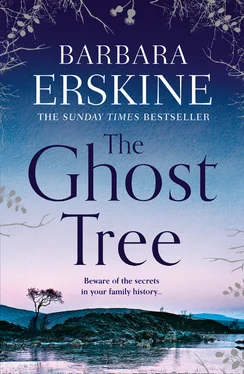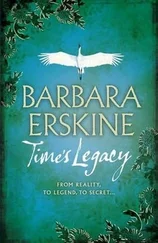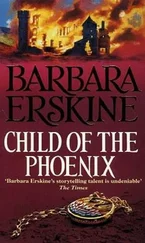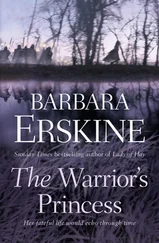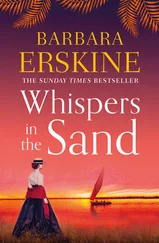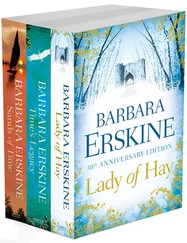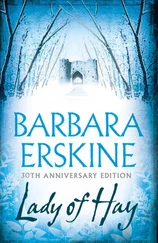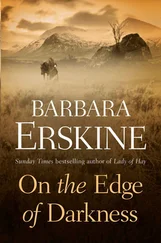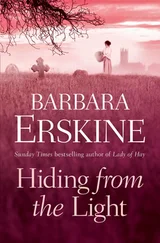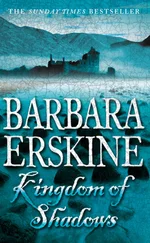Her mother had given her his name. Her father couldn’t have known. He would never have countenanced such a thing. It wasn’t on her birth certificate. Or her passport. So, it was her mother’s secret name for her, the name she had wanted her to carry.
She sat back for a moment, overwhelmed. Then it occurred to her that she didn’t need to make a family tree; her mother had done it all for her, but that made her want to know their stories even more. This was her family, the family she had craved since she was a little girl.
She reached for the next envelope. It contained a neat bundle of letters with remnants of broken seals, tied together with ribbon. Had her mother read all these? If she had, it must have been in secret, and when her father locked all Lucy’s treasures away he couldn’t have realised what they were or surely he would have burned them. Perhaps they had never been read again since they were first opened.
She carefully unfolded the first. This was from Thomas himself, addressed to his daughter, Frances; these had been arranged in order of date of writing, beginning in 1821 – addressed from somewhere called Buchan Hill. Her heart hammering with excitement, she glanced through them, aware that she had something inestimably valuable in her hands, something of national importance and, to her, fantastic interest. She picked out one and looked at it closely. The handwriting was firm and there was a small sketch at the end. Ruth screwed up her eyes, trying to see what it was. A cartoon character of some kind. An old man, with glasses and wild hair, a letter in his hand, at his heels a small attentive dog. It was a tiny, mocking, self-portrait. She put down the letter and stared at the wall for several moments, trying to calm herself, her instinct to ring Harriet and tell her what she had found. She resisted the urge. For now, this was her secret. It was too important, too exciting to be hijacked by Hattie.
This was her route into her family and the first thing she must do, she realised, was to sort everything into chronological order, starting with the first letter from the copies, which were Thomas’s letters to various members of his family that had been collected together. Thomas’s own writing was condensed and hard to read and she carried it over to the lamp on the side table. It was like finding a route into his head. His style was direct, if wordy, but that was a character of the age in which he wrote, detailed, seemingly with total recall and with a delightfully dry sense of humour.
Pushing the letters aside two hours later, she realised her head was aching and her eyes sore; she felt extraordinarily tired. Going over to the French doors, she pulled back the curtains and looked out into the dark. It had started to rain. The garden was wet and windy, the trees thrashing noisily as she stepped out onto the terrace and felt the rain on her face. The wind tore at her hair and she took a deep breath, smelling the salt in the wind off the churning Forth and the sweeter scent of mountain grass from the far-off Highlands.
It had always been a source of great pride to her Sussex-born mother that her ancestors came from Scotland, that wild, untamed place of history and myth and legend, a place that had pulled at the heartstrings of generation after generation of her family. And now that she was reading about it through the eyes of her Scottish ancestor, Ruth was beginning to understand. How strange that the wiles of Fate should have snatched him away from Scotland so young, first to Bath and then to the heat and sun of the Caribbean. Perhaps it was from these letters, written from so far away, that they had inherited their sense of nostalgia.
Ruth hugged herself with glee. She was at the beginning of the most glorious adventure. This was the world she had seen in her dreams. She was hooked.
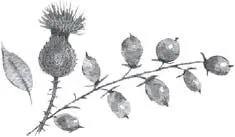
The entire crew, officers and men, had been assembled on deck to witness Farquhar’s punishment. The charge was insubordination and persistent recklessness in such a way as to cause the death of another crew member. They had given him the benefit of the doubt, and decided he had not intended murder. The sentence was to be flogged publicly at the gratings, followed by de-rating, which meant he was to be turned forward as an ordinary seaman with loss of status, pay and patronage.
Tom watched, his mouth dry, as Andrew was brought up from below deck. His face as he came past the line of officers was set, with just the smallest glimmer of defiance in his eyes. His gaze lingered for a second as he passed Tom, who felt a sudden shiver of fear. Andrew was unpopular on the ship, but there were many among the junior officers and seamen who would perhaps have preferred to deal with this matter amongst themselves. Here even Mr Harrison and Mr Wyatt were required to be present. The ship must be shown to be united on the side of discipline. Andrew’s irons were removed, he was stripped naked to the waist and secured to the grating that had been lashed to the lee rigging.
As the sound of the cat whistling through the air cut through the hiss of the waves and the thrum of the wind in the rigging, Tom closed his eyes. Farquhar’s back was systematically laid open with the full force of the lashes and his blood began to run down on the deck. Later the duty watch would scrub all signs of it away after he had been sluiced with ice-cold sea water and carried below.
Life resumed much as usual after the flogging, but without Farquhar’s malign presence amongst the midshipmen. Tom saw him only from a distance, though he was aware of his eyes following him and of the strength of Farquhar’s hatred. He tried not to care. He had done the right thing, he was sure of it. He still couldn’t get the picture of Robbie’s face out of his head, the touch of the small boy’s hand, already calloused from his shipboard duties, and the feel of it slowly losing its heat as the chill of death took him away. An innocent, happy child had lost his life after weeks of utter misery and homesickness. That he himself was only a few years older did not occur to him. He was nearly a man compared to Robbie and he felt intensely both his responsibilities and his failure to save the boy’s life.
The Island of Barbados was first sighted on 13 May. Tom felt a jolt of excitement as the lookout made the call and the ship’s company ran to the rail and saw for themselves the shadow on the western horizon and watched as it grew more and more solid in the haze. As the ship anchored, the whole crew were looking longingly towards the shore. The air was heavy with the scent of trees and flowers and earth, carried on the warm wind with the call of the gulls.
To his joy, Tom found the captain had selected him as one of the shore party escorting Mr Harrison and Mr Wyatt to the observatory with their precious timepiece.
It was strange to be on shore again. The beaten track from the port up the hill to the observatory seemed to rock and undulate under his feet and the scents of the island were overpowering after the clean salt and wind on the sea and the stink of the ship. Tom took in every detail. The boy chosen to come as the captain’s other servant was Jamie, and amongst the men rowing the party ashore was, to Tom’s disgust, Andrew Farquhar.
By now they all knew the story of Mr Harrison’s father, John, and his quest to find a clock accurate enough to maintain perfect time at sea. Tom had listened to the conversation of the two men and the officers at the captain’s table and he knew all about John Harrison’s race against his rival for the enormous prize offered for a timepiece that could be used to work out a ship’s exact position by using longitude as well as latitude.
Читать дальше
